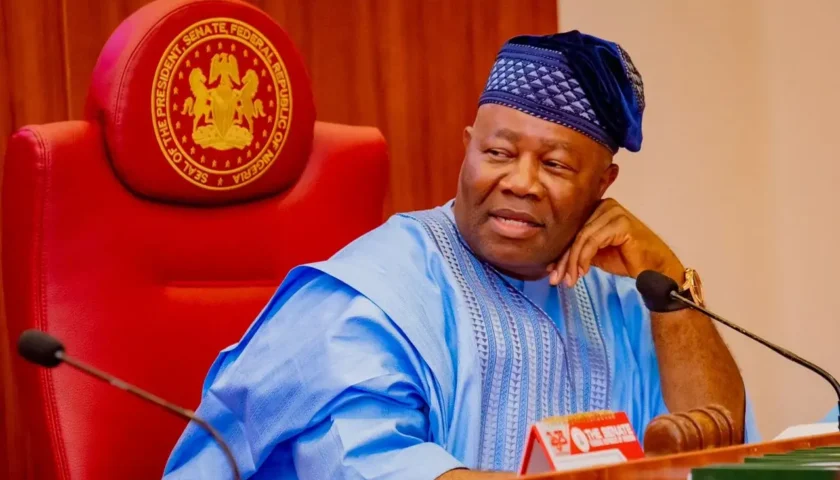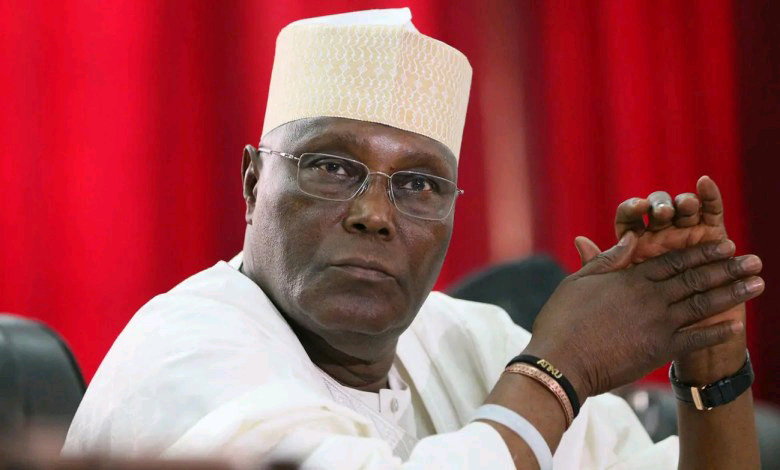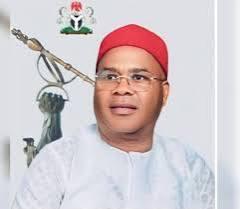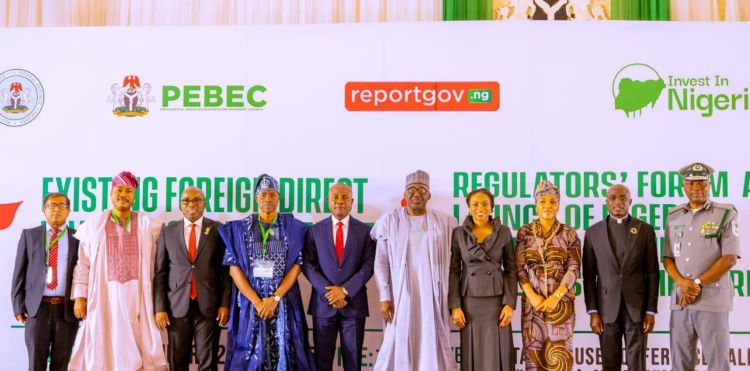By Sonnie Ekwowusi
President Bola Tinubu has recently been quoted as saying that Nigeria is not the only country in the world afflicted by poverty. Mr. President made this statement when he received a delegation from the National Assembly who came to felicitate with him on the occasion of the last Eid-el-Kabir celebration.
In other words, President Tinubu believes that the widespread public outcry about Nigeria’s high poverty rate is unnecessary because Nigeria is not the only country in the world affected by poverty. President Tinubu had earlier stated at the 55th International Conference, Exhibition, and Emerald Anniversary of the Chartered Institute of Personnel Management of Nigeria that poverty is not a shameful thing, albeit it is unacceptable under his administration. Because of this, President Tinubu is contemplating acquiring a new presidential jet to join his fleet of presidential jets.
However, the Labour Party has criticized Mr. President over his statement and his move to acquire a presidential jet. The Labour Party (LP) says it is disappointing that despite the excruciating poverty which Tinubu’s administration’s policies have unleashed on Nigerians, Mr. President is still underestimating Nigeria’s increasing poverty rate. The Labour Party implored the president to uphold the constitution he swore to protect, stating that under the 1999 Constitution, the security and welfare of the populace are the primary purposes of the Tinubu government.
The Labour Party presidential candidate in the 2023 election, Peter Obi, has reprimanded Mr. President for contemplating purchasing a new aircraft to add to the existing presidential fleet. Mr. Obi described the move as unacceptable and a clear show of insensitivity to the suffering of the Nigerian people. “With rising insecurity, poverty, hunger, and homelessness, this decision highlights the disconnect that is apparent between the government and the people. It is unacceptable,” said Obi.
Mr. Obi also criticized the Tinubu government for completing the official residence of the vice president with $15 million at a time when the country’s dire economic situation is deepening. According to Mr. Obi, “the value of the official residence of the American vice president stands at about $7.5 million even though that country is the world’s largest economy. To elucidate further, despite dropping down to the fourth-largest economy in Africa, with a GDP of $252 billion and a per capita income of $1,080, with huge debt burdens and borrowing to service debts, we are spending $15 million for our Vice-President’s residence, while the USA, the world’s largest economy with a GDP of $25 trillion, about 100 times our GDP, and a per capita income of $80,000, about 80 times ours, still houses their Vice President in Number 1 Observatory Circle, a house built over 100 years ago, and whose value is less than the $15 million we are spending on our VP’s residence.”
It is obvious that President Tinubu, like his immediate predecessor in office, Mr. Muhammadu Buhari, is not in touch with the economic hardship in Nigeria. That explains why he is downplaying Nigeria’s burgeoning poverty rate and contemplating acquiring a new presidential jet. In case President Tinubu does not know, it is no longer news that Nigeria has overtaken India as the poverty capital of the world. What is perhaps news today is that Nigeria’s frightening poverty statistics, rather than diminishing, are increasing in large proportions day by day across the different states of the federation.
The previous survey carried out by the National Bureau of Statistics (NBS) had acknowledged Nigeria as the poverty capital of the world with about 87 million “extremely poor people.” But in November 2022, the Multidimensional Poverty Index (MPI) survey carried out by the same National Bureau of Statistics revealed that no fewer than 133 million Nigerians, representing 63 percent of the population, were currently living in multidimensional abject poverty.
A breakdown of the poverty ratios in different geopolitical regions of Nigeria reveals that 65% of the Nigerian poor (86 million people) live in the North, while 35% (nearly 47 million) live in the South. Multidimensional poverty is higher in rural areas, where 72% of people are poor, compared to 42% of people in urban areas. Regarding the proportion and intensity of poverty, the poorest states in Nigeria are Sokoto, Bayelsa, Jigawa, Kebbi, Gombe, and Yobe. Sokoto State accounts for 91 percent of the multidimensional poverty in Nigeria, while Ondo State accounts for only 27 percent.

Nigeria’s Senate President Godswill Akpabio who is said to be a mere rubber stamp
It is disheartening that while the citizens of Nigeria, who should ideally be the bedrock of a flourishing society, are finding themselves navigating a landscape marred by adversity amid the reckless expenditure of the Tinubu government, President Tinubu is contemplating increasing the fleet of his presidential jets. Those who argue that Tinubu inherited a worse economy from Buhari forget that government is a continuum. It is the same APC still in power. Even if Tinubu inherited an economic liability from Buhari, it cannot be cured with reckless expenditure. The pervasive and prolonged hardships that the people endure not only paint a bleak picture of a nation grappling with numerous challenges but also depict the failed hopes and dreams of the people. At the moment, the wasteful spending of the Tinubu government erodes public trust in the government. The citizens have become cynical about the government’s ability to address their needs and provide essential public services such as healthcare, education, and infrastructure development. This is sad.
In fairness to President Tinubu, he never promised to fix Nigeria upon coming to power. He merely stated that it was his turn to assume the presidency and follow in Buhari’s footsteps. Like Buhari, President Tinubu is ruling Nigeria as if it were his personal fiefdom. Instead of appointing his ministers to reflect the federal character of Nigeria and promote national unity, as stipulated in section 14(3) of the 1999 Constitution, President Tinubu prefers to surround himself with the same wheeler-dealers with whom he executed many shady deals during his stint as Lagos State Governor. Like Buhari, Tinubu is not subject to the checks and balances of the National Assembly. Why? Because the current National Assembly is also a mere rubber-stamp assembly.
It cannot refuse Tinubu anything. For example, Senate President Godswill Akpabio (off the mic) is Tinubu’s man. Akpabio cannot refuse President Tinubu any deal. Like Buhari’s daughter, Tinubu’s son, Seyi Tinubu, flies the presidential jet. In their first 100 days in office, President Tinubu and Vice-President Senator Shettima have been indulging in an overspending spree. For example, the Federal Government spent a gargantuan sum of $507,000 on hotel accommodation for President Tinubu at the 78th session of the United Nations General Assembly. The irony of it all is that the same Federal Government, which cannot pay Nigerian workers a livable minimum wage, has spent a gargantuan N90 billion sponsoring the Hajj pilgrimage. I tire.
Amidst scarcity and economic hardships in the country, the Federal Government has purchased 360 exotic cars, each costing about N160 million, for the 360 members of the House of Representatives. You may recall that in August 2023, it was reported that the Buhari government was spending a huge sum of N16 billion to purchase exotic cars for Buhari’s 48-member cabinet, the largest cabinet in Nigeria since 1984. It is preposterous that amid the economic hardship in Nigeria, President Buhari retained a bloated cabinet, a bloated number of Special Advisers, and bloated special aides, among other things.
Like the Buhari government, the Tinubu government is also overspending and overborrowing money from abroad with little or no thought on how to repay the accumulating debts. Similar to Buhari, President Tinubu is also giving out subtle bribes, otherwise called palliatives, to the people in a bid to silence them. The Tinubu government plans to spend a whopping N3.27 trillion on palliatives alone. Like the failed Buhari palliative policy, the Tinubu palliative policy is already a failure. The policy is a drain, dishing out free money and bags of rice and beans to APC stalwarts and election riggers.
Meanwhile, prices of goods and articles in the Nigerian market are prohibitive. For example, ordinary shoe polish now sells for between N1,500 to N2,500. The most tragic is the simmering soaring prices of foodstuffs in Nigerian markets at the moment. When was the last time you went to the market to buy foodstuffs such as garri, rice, tomatoes, tubers of yam, egusi, pepper, eggs, and so forth? A mudu of yellow garri sells for more than N280, while a bag of yellow garri goes for N22,000. A mudu of beans now sells for N1,300.
The price of sachet water, popularly known as pure water, is now N300 per bag. Meat is unaffordable. Ditto for fish. A long loaf of bread sells for N1,200. The smallest Agege bread sells for N35. Primary health delivery is in disarray. Essential drugs and medications are now so scarce and exorbitant. A bag of cement costs no less than N10,000. Some hospitals have shut down as most medical doctors continuously flee the country in search of a livable medical practice abroad. A bag of rice now sells for N88,000.
The logical question in light of the above is: why should Nigeria be entrapped in circles of endemic poverty despite her abundant natural and human resources? There is no doubt that failed leadership is the bane of economic development and growth in Nigeria. Therefore, to mitigate the consequences of the humongous wasteful expenditure, it is essential for the Tinubu government to adopt responsible fiscal policies, ensure transparency and accountability in financial management, and prioritize investments that contribute to sustainable economic development and the improvement of the well-being of the people. A nation’s greatness is measured not only by its economic and political standing but also by the well-being and contentment of its people.
The paradox is that, having finished squandering the national treasury in wasteful expenditure, the government is now desperately trying to borrow more money. Whereas if all the money squandered in reckless expenditure had been saved, they would have been enough more to pay workers a livable minimum wage and fix ailing Nigeria. Only prudent financial management contribute to the overall well-being and contentment of the people of Nigeria. Nothing else. During his tenure, Mr. Buhari had promised that his administration would “lift 100 million Nigerians out of poverty” but ended up putting more than 100 million Nigerians into excruciating poverty. Therefore, in the coming months, the Tinubu government is urged to implement and adhere to fiscal responsibility measures. It should identify and prioritize essential expenditures over non-essential ones. Anything short of this is carrying irresponsible government too far.





